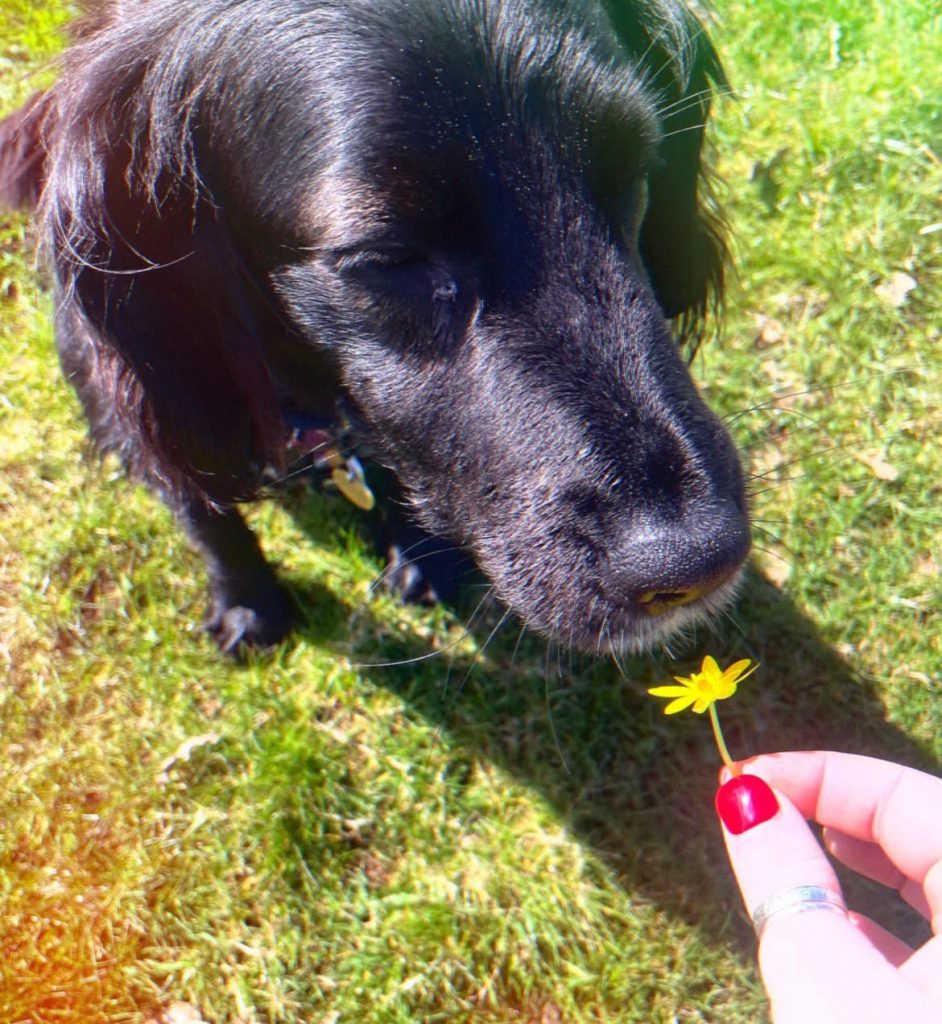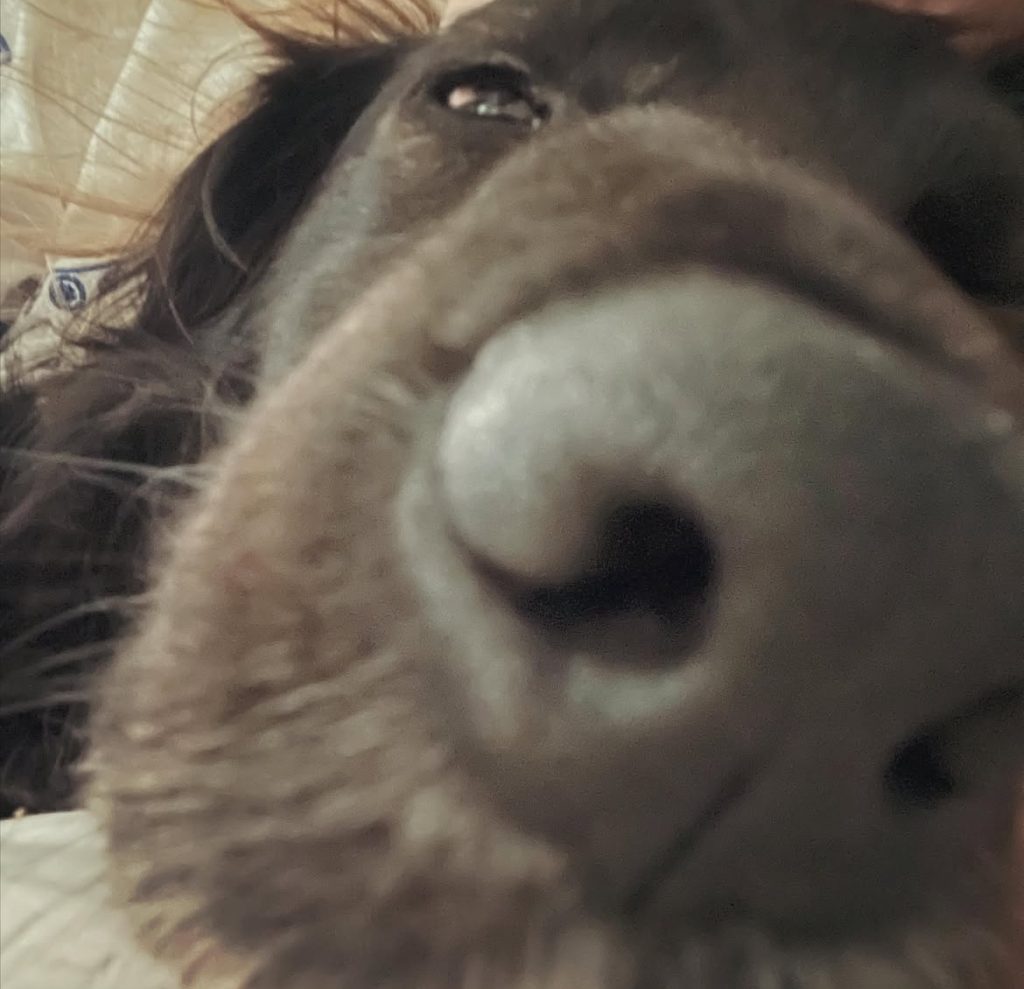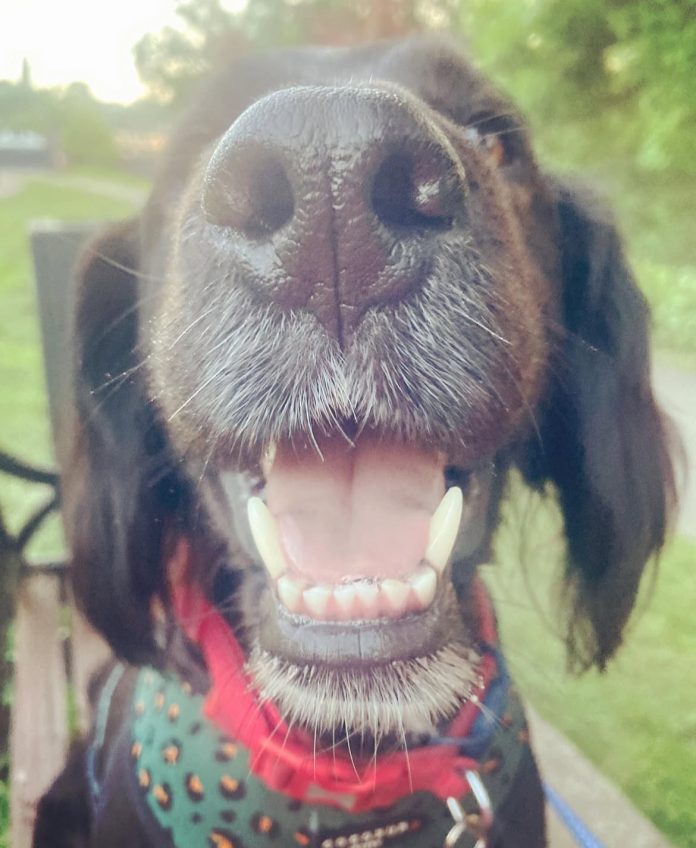A dog’s sense of smell is their superpower
April Fools Day is already done and dusted … But it is no joke that April is also National Pet Month, and the RSPCA is celebrating pooches’ little-known secret weapon – their snoots!
We all know our mutts love a good sniff – but do you know what it really means?
Encouraging our dogs to use their remarkable snoots is a fantastic way to bring them joy, give them enrichment, and strengthen your bond with your beloved pet.
Dr Samantha Gaines, Head of the RSPCA’s companion animal welfare team, shares some little-known facts about your pooch’s sniffer…
1. Dogs have a unique nose print. The special pattern of bumps and grooves in the skin and the shape of the nostrils are different in every dog – much like a human fingerprint. It’s even possible to use their nose prints as a form of identification.
2. Dogs can smell different things in each nostril. Their nostrils can be used separately and in different ways. When sniffing something new which is likeable or neutral they will start with their right nostril and then switch to their left.
3. Dogs’ sense of smell is superior to humans. They have up to 300 million receptors in their nose – compared to just five million in a human nose. They can detect much fainter smells than humans, with their sense of smell being 10,000 to 100,000 times more sensitive than ours.
4. They can detect individual human scents. Every person has their own unique scent which means dogs can recognise their owner’s scent. They can even distinguish the smell between twins.

5. They can smell when you’re stressed. Amazingly, dogs can detect chemical changes in their owners’ sweat and breath, so when their owner is stressed, they can change their behaviour in sympathy.
6. Scents can affect how a dog is feeling. Much like us, the soft scent of lavender and chamomile can help keep them calm, but not all whiffs make them happy and relaxed – they’re not fond of strong odours like citrus, vinegar and fresh herbs like rosemary, which can make them feel agitated or unhappy.
7. Dogs can breathe through their nose and sniff at the same time. Their noses are designed so that smells stay in their nose even when breathing. They also have two types of sniff: one long sniff for smells far away and one short for smells close by and on the ground.
8. We know dogs can sniff out cancer. Dogs’ noses can even support medical discoveries. They can also be trained to detect illnesses, including Covid, malaria, Parkinson’s disease and migraines. Dogs can also predict dangerous blood sugar changes in diabetics and alert someone when they are about to have a seizure.
9. Sniffing is good for your dog – it’s how they find out about the world around them. Marks on objects like lamp posts tell other dogs not only that they were there but also information about themselves as individuals, so much like the way we use social media! It’s a natural behaviour for mutts and essential to their wellbeing, providing them with important mental stimulation.
10. Smells change over time. Dogs need to sniff one another regularly so that they can continue to match the odour to a particular dog. It’s also how they appear to tell the time using changes in odour concentration to work out when dinner is on its way or their owner is returning home.

Samantha said, “Dogs are incredibly special animals, make fantastic family pets and bring so much joy to our lives – but they’re so much more than just a furry friend, as their fascinating noses prove.
“While they’re extremely characterful, great fun and immensely rewarding, they have complex needs, too. They communicate through whines, whimpers, barks, howls and body language, as well as their ears, eyes, paws and body position. Many are highly social and can even learn the names of their favourite toys.
“When you take on a dog, it’s important to make sure you’re equipped with all the knowledge you need to give them a happy, healthy life and are able to provide them with everything they need throughout their life.”
For more facts, tips and advice about your furry friends, visit: rspca.org.uk. If you’re looking to add a dog or any other animal to your family this National Pet Month, check out the RSPCA’s rehoming page.
Animals’ futures are in our hands. The decisions we take now will influence the lives animals enjoy in the future. Animal Futures: The Big Conversation is now live – and we want as many people as possible to have their say on the future of animal welfare in this country.







